To bridge the communication gap between Park staff and the ever-increasing number of Chinese visitors, Yellowstone National Park specifically hired three interpretive rangers this summer who speak Mandarin Chinese.
The rangers’ duties are the same as any interpretive ranger—answering questions at the information desk, presenting campfire talks, and “roving,” or walking the boardwalks near their assigned areas. But when needed, they can explain not only about Yellowstone’s features but its rules and regulations to Chinese visitors.
Hong Chen, 52, based at Mammoth, has lived in the United States since 1996 and became an American citizen—required to be a park ranger—in 2012. He came to the U.S. as a graduate student at Penn State, where he studied biology and entomology. He began studying English when he was 15. He said Chinese citizens became interested in learning English after President Richard Nixon’s historic trip to China in 1972.
There are many dialects in the Chinese language—some of which are incomprehensible to others—while Mandarin is the official language of government and education.
Chen said some dialects share the same written language but cannot understand one another in the spoken version. He compared it to the difference between American English and British English. He said the first time he heard British English he didn’t understand the words.
Chen explained some of the cultural differences between China and the United States. According to Chen, Chinese visitors to the Park leave the boardwalks or approach wild animals too closely because they have little experience with nature and wild animals at home.
Chen notes that the U.S. and China are roughly about the same size in landmass, but where the U.S. has about 350 million people, China has more than 1 billion. Most now live in urban areas and few have the opportunity to experience wild and scenic places like Yellowstone or to see animals in the wild.
“Many think all animals are tame, like cows,” Chen said.
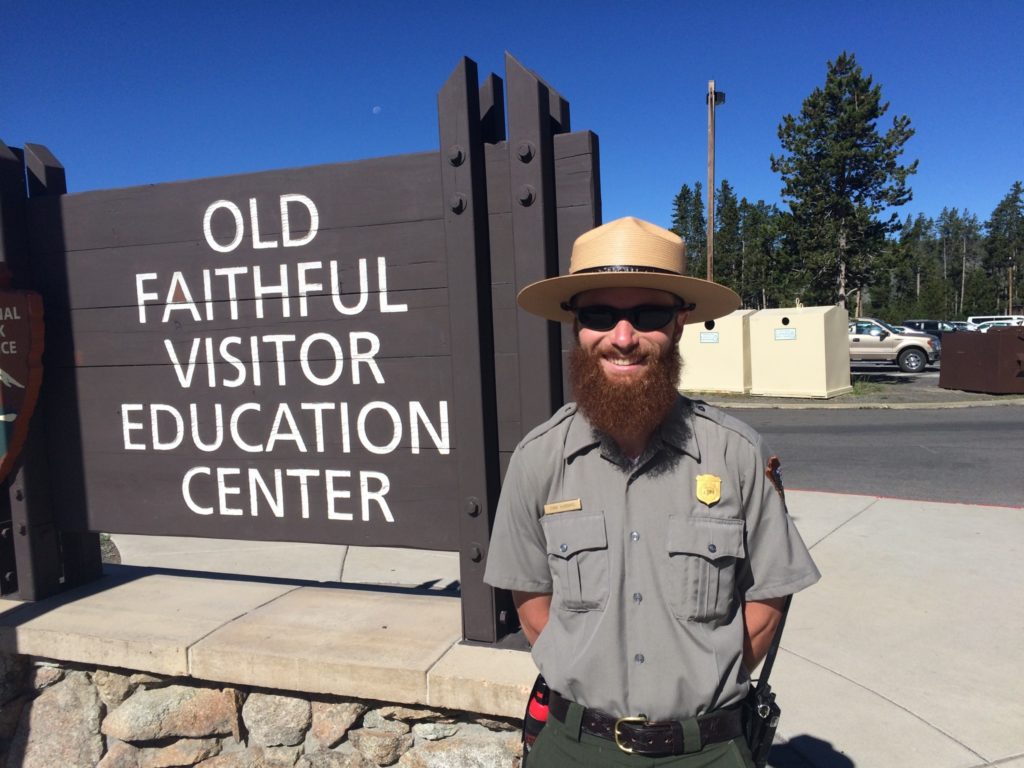
Interpretive Ranger Evan Hubbard, 28, based at Old Faithful, grew up in Santa Fe, New Mexico, and studied Mandarin for two years in China.
Hubbard said when he encounters Chinese visitors off the boardwalk, he explains they must remain on the established walkways for their own safety.
Once people understand the risk, they often thank him for his concern about them, Hubbard said.
Chen said the people he finds off-trail often tell him they didn’t read the Mandarin section of the safety flier handed out at the entrance stations.
Many who don’t obey the rules are older Chinese citizens who don’t speak English. Younger people in China today study English and are more likely to be fluent in the language than their elders, Chen said.
Hubbard said Chinese visitors ignoring the “Stay on Boardwalk” signs has become a “big issue,” but he understands how it happens.
Chinese visitors watch other tourists for clues on how to behave, Hubbard said. Sometimes they see footprints where others have walked before them. They see Americans getting too close to the elk and bison, too, and think it must be OK.
And they may not understand that the sign really means “Stay on boardwalk” because some rules seem to be more like guidelines that are not strictly enforced.
“Like a speed limit sign, for example,” Hubbard said.
Chen said Chinese visitors also ask questions about other places in the region they should visit. And they frequently ask about American food.
Many American franchises such as McDonald’s, Burger King, and Pizza Hut have restaurants in China. Chinese visitors are interested in independent restaurants.
“They want a homemade meal,” Chen said.
Chinese residents have the money to travel, and looser travel restrictions make it easy. An American visa is good for 10 years, Chen said.
In the past, a Chinese worker might make the equivalent of $20 per month. Today workers make 10 times that.
“They have the money and like to go someplace,” Chen said. And Yellowstone is well-known globally, he added.
A visit from China to the U.S. costs at least $5,000, Chen said. The lowest airfare is at least $1,000. Visitors fly, for example, to Seattle, and rent a car to visit national parks like Glacier, Yellowstone and Grand Teton. The Grand Canyon and Las Vegas are popular, too.
They often ask Chen to suggest travel routes and other attractions they should visit.
Hubbard said Chinese visitors are often pleasantly surprised when he speaks Mandarin. After a visit to China, his growing fascination with the country led him to change his college focus to studying Mandarin in China. He had assistance from the U.S. State Department’s Critical Language Scholarship program. He also speaks Hebrew and Spanish.
Both Chen and Hubbard will work in Yellowstone through September. Hubbard wants to go on and continue to use his language skills to facilitate contact between the two cultures in an increasingly globalized world.
Chen’s wife and two elementary school-aged sons remained behind in Lincoln, Nebraska for the summer. His wife is a licensed acupuncturist. Chen would like to perhaps work in other parks or find a permanent job in entomology.
 Yellowstone Insider Your Complete Guide to America's First National Park
Yellowstone Insider Your Complete Guide to America's First National Park
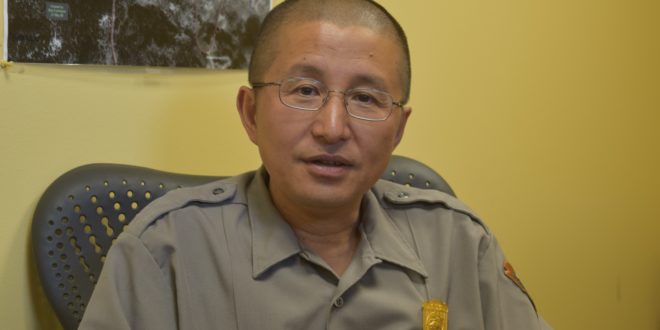
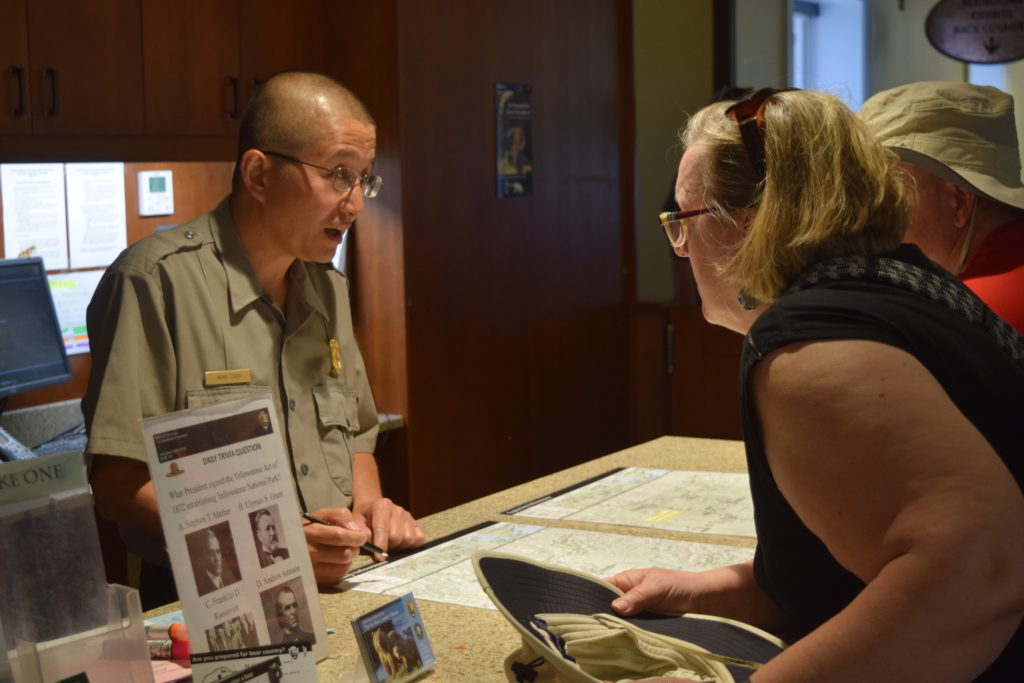
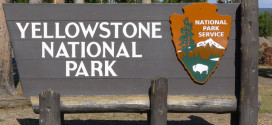
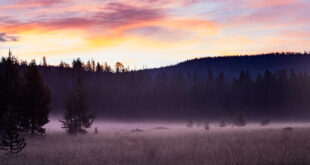
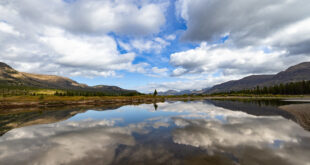
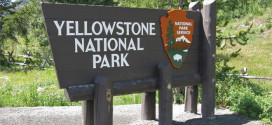
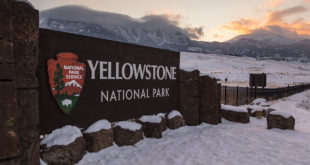
You must be logged in to post a comment.